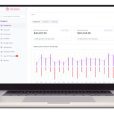Two hundred years ago, the cattle farming company Australian Agricultural Company (ASX: AAC) was set up to produce wool, tobacco, flax and more until it transitioned to cattle breeding. While its problems then had to do with the quality of land; now, it is part of the modern zeitgeist, having to bear massive inflationary pressures.
During H1 FY24 ending September 2023, its cattle sales were down from H1 FY23’s $41.4 million to $35.2 million. Its operating profit declined from $38.3 million to $30.1 million, with overall meat sales performance dwindling, reducing cattle prices and in-market price pressures. AACo’s statutory earnings before income tax fell from a profit of $80.7 million to a loss of $136.6 million. It recorded a net loss of $105.5 million, ending the half with $6.1 million cash in hand.
Its Wagyu beef pricing per kilogram decreased by 5%, with sales in Australia falling by 20%. Challenging macroeconomic conditions in established target markets, including inflation and domestic supply dynamics, put pressure on the price.
The reduced cattle prices represent a four-year low for AACo. These prices impacted overall performance, with the unrealised mark-to-market decline of $175.5 million on its herd.
Managing Director and CEO David Harris commented, “These are pleasing results considering the headwinds faced this period. They were achieved through a disciplined focus and determination to drive excellence across the value chain. We’ve made further progress against our strategic priorities, effectively managed costs despite price and inflationary pressures and continued to build brand awareness in our key markets. It’s an outcome we can be proud of and positions the company well heading into the second half.”
The Company’s customer receipts stood at $172.9 million, staying somewhat flat on H1 FY23’s $170.3 million. However, its total cash inflow, though positive, fell from $3.4 million to $2.5 million.
AACo feels that its first-half results in North America—with meat sales remaining flat—align with its strategy, with price and volume maintained during the US herd liquidation. Overall, meat sales revenue has improved by $9.5 million, with 15% higher volumes vs PCP.
At the same time, AACo celebrated two decades in Korea during the half.
The higher sales volumes were achieved while controlling costs in a high inflationary environment. The Company has been working on making itself simpler and more efficient.
As for its sustainability efforts, the report noted, “We are advancing our initial land-based carbon sequestration projects and have reached the half-way milestone in our pioneering Rangelands Carbon by Satellite project, which was announced alongside the launch of our sustainability framework in November 2021.”
Progressing into the rest of FY24, AACo has kicked off its successful dryland cropping trials with a combined footprint of 6,000 hectares across two North Queensland stations. The initial results are positive, and the program will aim to unlock greater farming potential within the region. Plus, the Goonoo property expansion, which continued through H1, will increase capacity by up to 12%.
AACo has a massive history behind it. After finding sheep farming unsustainable, it shifted to cattle breeding. And it is not ready to fold yet, changing tact in the face of increasing financial pressures.
- Ovanti’s iSentric signs contracts worth $14.4m with Malaysian commercial bank - June 27, 2024
- Baby Bunting fights back from retail downturn with 5-year strategy, includes Gen-Z focus and self-funded growth - June 27, 2024
- CLEO meets with US FDA to develop strategy for ovarian cancer test launch - June 26, 2024













Leave a Comment
You must be logged in to post a comment.